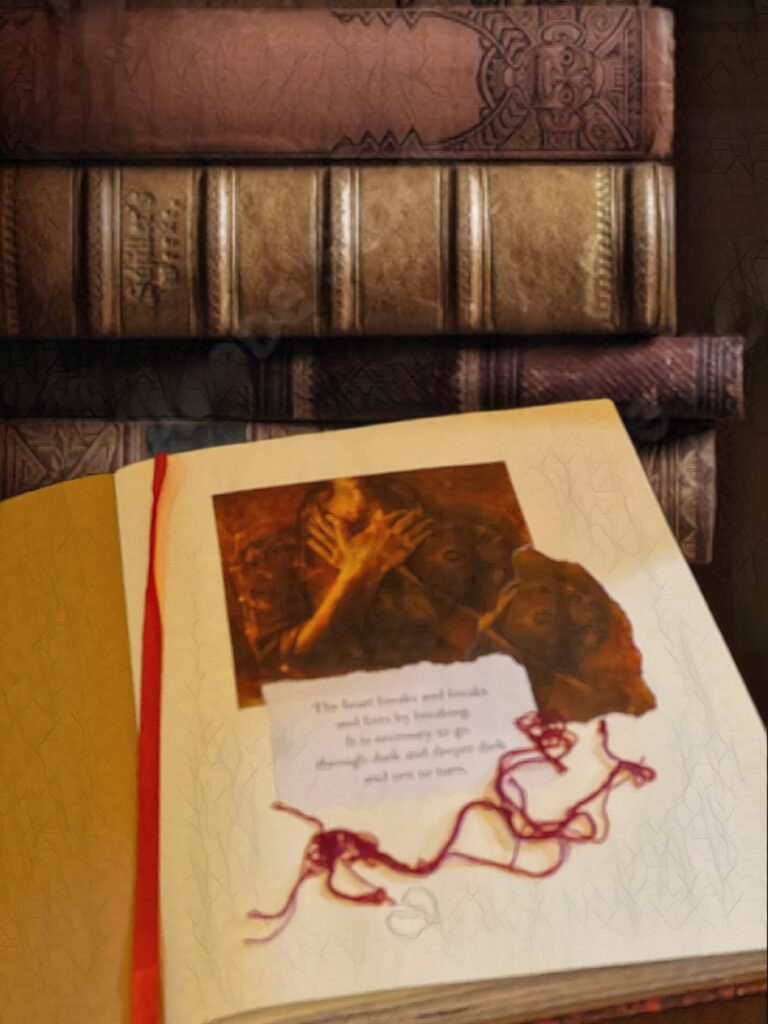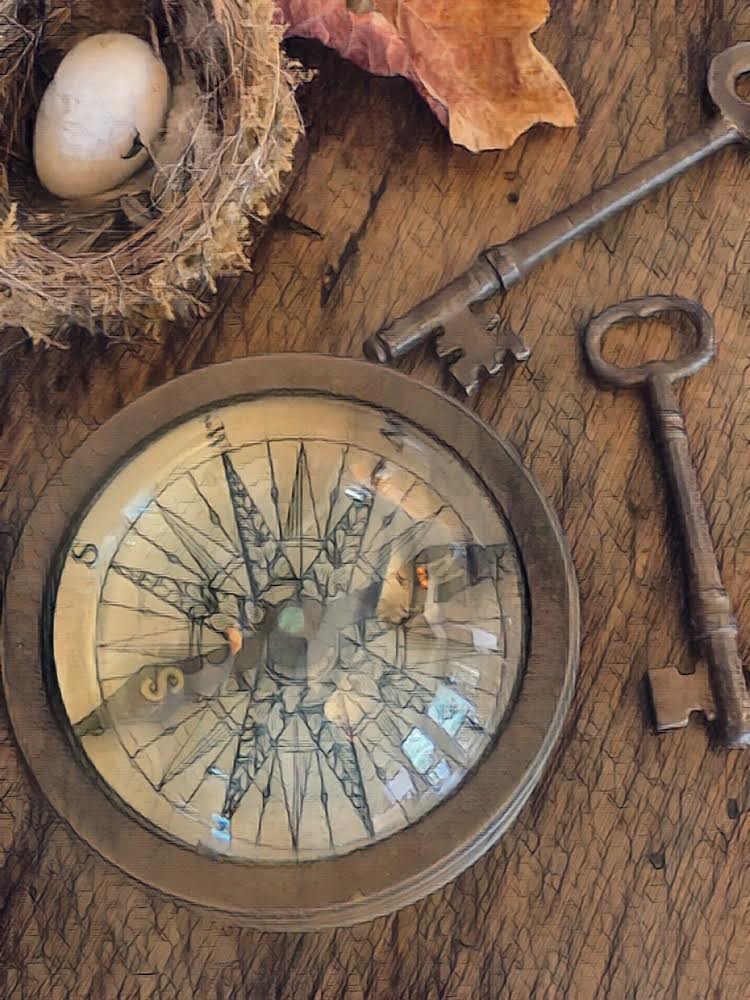“Use your lantern. The light is your guide; your values, your insight, your wisdom.
It is you inner truth. Your authentic Self. Let it lead the way…”
It is you inner truth. Your authentic Self. Let it lead the way…”
Nain at Wayfarer
The Wayfarers Lantern – Insights, Ponderings & Wisdom
Welcome to the Wayfarer’s Lantern. I have created this page as a means of sharing my own insights, ponderings and creativity with you, as well as those insights, inspirations and wisdom I have gleaned from elsewhere. This page is here as an invitation and offering that may prove useful in facilitating your own reflective process, iterative reflexivity and pro-action as your walk your path of self-discovery and transformation. The Wayfarer’s Lantern offers quotes, art and creative representation, insights and wisdom, as well as poses questions and throws out challenges that you may choose to take and reflect upon, contemplate, process or use as inspiration and motivation in your own time and in your own way, as a means of continuing your personal understanding, learning and discovery……
Monthly Existential Pondering
“There is immeasurably more left inside than comes out in words…”
– Dostoevsky
How do you make sense of this? Does this resonate because you tend to not speak up honestly and express how you truly feel? Or does this quote speak to the idea that sometimes it’s hard to find the words and language to express ideas, feelings and experiences…sometimes there are no words that capture the depth, complexity or richness of our experiencing. Is there value in saying less and listening, reflecting and contemplating more? What is the value of feeling into our experiences and relationship with others, particularly holding silent space as opposed to filling the space with words and talking?
Insights & Reflections
The Value of Keeping a Journal
 I have found keeping a creative journal a really valuable tool for reflection and for ongoing self-exploration and processing work. I always encourage those I am companioning through therapy to keep a journal, and to find a book that feels special and honours your process – not just an ordinary exercise book or scrap paper. But rather, find a beautiful hard cover book, a visual journal or sketchbook, create an ‘altered book’, scrapbook or make your own journal with recycled and textured paper and handmade binding.
I have found keeping a creative journal a really valuable tool for reflection and for ongoing self-exploration and processing work. I always encourage those I am companioning through therapy to keep a journal, and to find a book that feels special and honours your process – not just an ordinary exercise book or scrap paper. But rather, find a beautiful hard cover book, a visual journal or sketchbook, create an ‘altered book’, scrapbook or make your own journal with recycled and textured paper and handmade binding.
However you choose to reflect, documenting your thought and feeling process can be incredibly powerful, insightful, dynamic and a deeply meaningful way of supporting your process of self-understanding, personal development and transformation. A journal acts as a container, a holder of your story, a book or secrets, or a book of chapters, that reflect moments in time, experiences, feeling and emotion states and many other aspects of your process. It provides a sense of history, especially by dating your entries, as well as a sense of wonder and inspiration captured and held sacredly within its pages.
When we invest something of ourselves into the holding space, container or book that is our journal, we invariably place a level of value and reverence to it, thereby increasing the value we place on our inner world of experience, how we express it, nurture it and relate to it. So, make your journal feel special, inviting, curious, creative and interesting. Even just having a tactile or beautiful cover can make it feel important and something that gives you a sense of pleasure and genuine desire to connect and engage with it. Being open to a creative and multi-modal journal also takes away the element of it feeling like work. Sometimes, a journal that is strictly for writing your reflections, thoughts and cognitive process can feel laborious, effortful and tiring to have to commit to. Take the pressure off….write in it only when you feel moved to, make it creative and non-linear, fun and interactive. Put in pictures that inspire you, song lyrics that move and uplift, quotes that motivate, poems, drawings and photos of powerful memories. Document your sleeping dreams as well as your waking dreams, your hopes and aspirations. Make lists of things to achieve and the goals you wish to set, notes to self, plans, creative ideas, feelings, emotions AS WELL as your thoughts. And don’t be afraid to read back over your journal. The re-reading of your entries is an important part of the reflexive process and enables you to see where you’ve been, and how things are shifting and moving. It enables you to track your progress, how you are growing and the areas that still require work. Let your journal take you on an exciting and inspiring journey….there is perhaps, no journey of greater importance than the journey into, and of, the ‘Self’, and your journey can be whatever you want it to be…
Battling the Dragon
Fighting for ourselves and finding our voice can be hard, especially in the face of entrenched and powerful patterns and shadow parts of ourselves that work to keep us stuck. This can be especially compounded for those who have experienced great hardship, through trauma, adversity and suffering. But when we do start to reclaim our voice and our sense of self; when we are able to speak up, be honest, express our needs confidently and learn to say no, when we start to shift long held patterns and ‘ways of being’ that no longer serve us, we discover a power within ourselves that is palpable, exciting and liberating.
It pushes us forward to bravely walk the path towards a life in line with our values and a life that feels honest, joyful, empowered, purposeful, meaningful and whole. A life that is reflective of what truly matters to us. It inspires us to keep walking and climbing despite the hardship, adversity and obstacles. When the light of our genuine and powerful Self shines, we transform in extraordinary ways and we start to not only feel, but truly believe, that the life we are seeking, the path we want to follow, is alive with hope and possibilities.
The Importance of Values
 Do you ever reflect on your values? Are you aware and clear of what your values are?
Do you ever reflect on your values? Are you aware and clear of what your values are?
I think these are important questions to ask ourselves as our values are the standards and principles that guide and help us navigate life – socially, morally, ethically and spiritually, and by spiritually, I refer to the core, essence and spirit of ourselves; our inner Being.
Values influence how we treat people and how, in turn, we want them to treat, and behave towards us. Values speak to want is important to us; what truly matters. They are embedded in our attitudes and belief systems and reflect who we are and how we experience the world and how we want to be perceived and understood in relationship to the world of other. Metaphorically, I like to think of values as a lighthouse, our truth and guide that helps us navigate the world, especially through the dark and stormy times; times when we can be out of kilter, off track and struggling to make good choices and decisions. Times when we are clouded by negativity, grief and powerful emotions such as resentment, anger or jealousy that prevent us from seeing things with clarity.
Knowing what our values are is important in grounding us or reeling us back in when we lose sight of what matters. When we struggle to make decisions that are right for us and those we love, when we lose our way and feel lost in the patterns that are not serving us, when feelings of shame and unworthiness, or the craziness of social pressure, influence and manipulation take hold and we start to lose our sense of who we are – our sense of Self. When we are not clear in our values or we find ourselves not living in line with them, that’s when we find ourselves experiencing deep inner conflict which can manifest in behaviours that compromise ourselves; behaviours that are at best unconstructive and at worst, greatly destructive.
When our values are in conflict we feel crap about ourselves. We may feel angry, resentful, depressed, lost, overwhelmed, dissatisfied, unfulfilled, lacking in purpose and feeling a sense of meaninglessness in our lives. Deep inner conflict can, in turn, result in seeking to lessen the discomfort and conflict by drawing on behaviours and patterns that don’t serve us. Instead, they work to increase the conflict by causing us to act out of integrity or out of line with our values even more. And so the cycle keeps going.
Bringing our behaviour, beliefs and values into congruence is vital to developing a healthy and strong sense of self-worth and self-esteem; a strong and healthy sense of who we are as ‘Self’. It starts with understanding our values and then exploring the conflicts that may be causing our behaviour to be incongruent with our values. This is where therapy can be useful. When we start to explore our values, we start to understand more about ourselves and what is important to us. Self-exploration and discovery helps us in turn, develop insight and awareness. Without awareness, it’s hard to change behaviours and successfully work through and address the conflicts and problems that plague us. Looking at ourselves and addressing our struggle involves a level of vulnerability and, being vulnerable requires courage. Delving into the shadow parts of ourselves isn’t easy but the rewards are great when we see how much less stressed we feel as the heaviness of our conflicts and overpowering emotions start to shift and lift. And, when we feel more empowered over ourselves and our lives, perhaps the greatest reward is living a life that feels more liberated, authentic and meaningful.
The Power of Metaphor
 The use of metaphor in therapy and in one’s own personal explorations, ponderings and reflections can be both useful and powerful in terms of making meaning and sense of our experiences. Metaphor can provide clarity and identify hidden similarities, patterns and meanings between two different ideas. Metaphor and archetypal patterns go hand in hand as it’s argued that archetyapal content expresses itself first and foremost, in metaphors. Consider the notion of the knight reflected above in my video piece. The knight achetype slaying the dragon directly relates to the metaphoric idea of fighting our battles – the Dragon representing those battles – both the personal battles within ourselves and our patterned ways of being and our inter-relational battles and conflicts with others.
The use of metaphor in therapy and in one’s own personal explorations, ponderings and reflections can be both useful and powerful in terms of making meaning and sense of our experiences. Metaphor can provide clarity and identify hidden similarities, patterns and meanings between two different ideas. Metaphor and archetypal patterns go hand in hand as it’s argued that archetyapal content expresses itself first and foremost, in metaphors. Consider the notion of the knight reflected above in my video piece. The knight achetype slaying the dragon directly relates to the metaphoric idea of fighting our battles – the Dragon representing those battles – both the personal battles within ourselves and our patterned ways of being and our inter-relational battles and conflicts with others.
For people who find it hard to effectively express and communicate their feelings and emotions, metaphor is a very handy and effective way to find a language and meaning for emotional experiences that are hard to express and put into words. Some common expressions that many of us naturally draw on as metaphor include; the ‘fire raging in the stomach’ to express anger or the notion of ‘climbing up the mountain’ to express a feeling of an insurmountable problem. These feeling or emotion metaphors come into greatest effect when they can then be used to explore and deepen one’s experiences in order to better access the unconscious content, open up conversation and ultimately make sense of, or find meaning in the experience. Art, creative expression, embodied ‘felt sense’ and ritual work are powerful modalities for better accessing and processing the content that is trying to be understood by a metaphor or metaphoric language.
